[[{“type”:”media”,”view_mode”:”media_small”,”fid”:”685″,”attributes”:{“alt”:””,”class”:”media-image”,”typeof”:”foaf:Image”}}]]
Oh god, here we go again. I knew it would be back, but I thought it would take longer.
As a teacher, you fight ignorance, apathy, a little delusion here and there… part of the job is that kids are clueless, and we’re trying to help de-ignorize them.
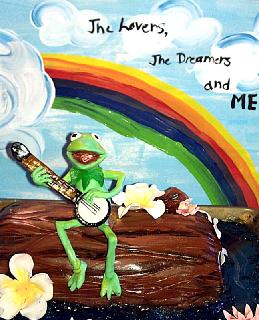
From time to time (more and more often, I’m afraid) you have that kid whose parents are doing everything they can to prevent their child from ever having that first clue. They go to extreme, hostile measures to shield them from the least little bit of accountability, from any real academic or behavioral expectations, and they demand high marks and rainbow connections in return. You know they’re ruining whatever chance this kid has to ever not be useless – you know they’re probably setting the kid up for a long, painful existence even when they’re NOT in jail.
But they’re the parents, and while you have some control over what you will or won’t do, in the end they’re pretty much in charge of their minor child.
That’s what it’s like to live in Oklahoma. The entire state is, in the end, controlled by malicious idiocy. We can rant and complain, we can “educate” our understaffed little asses off, but we can’t fix it. They’re in charge – and they’re going to stay in charge for the forseeable future.
Tell me again what a GREAT idea democracy is. Good thing we gave the vote to all the stupid people, isn’t it?

Representative Dan Fisher, Black Robed Regiment Bringer Backer, has authored a Concurrent Resolution condemning APUSH for not being ‘Merican enough. A Concurrent Resolution isn’t a law – it’s the kind of thing usually used to commemorate the local football team’s one win of the season or acknowledge National Potato Week – but it’s still worth looking at.
I’m trying to clarify a few things for myself regarding what actual impact a ‘resolution’ can have on the State Board of Education or how tax dollars are or are not spent before I rant further – not that having all the facts should be an issue here, given the nature of the legislation we keep having to debunk.
In the meantime, here it is, word for word. Keep in mind that if you don’t like something you see here, it’s because you’re “dishonest” and because you’re too stupid to understand what he means.
You gotta love small people with just enough power to become truly loathsome.
HOUSE OF REPRESENTATIVES – FLOOR VERSION
STATE OF OKLAHOMA – 1st Session of the 55th Legislature (2015)
HOUSE CONCURRENT RESOLUTION 1002 By: Fisher
AS INTRODUCED
A Concurrent Resolution urging the College Board to change the Advanced Placement United States History course framework and examination; directing the State Board of Education not to award grants or expend certain money for any Advanced Placement United States History course or examination until certain conditions are met; directing the State Board to explore certain options; directing the State Board and boards of education to make certain decisions using certain criteria; and directing distribution.
WHEREAS, approximately 500,000 students in the United States take the College Board’s Advanced Placement United States History course each year; and WHEREAS, in Oklahoma, approximately 5,000 students are enrolled in an Advanced Placement United States History course for the 2014-2015 school year; and WHEREAS, traditionally the Advanced Placement United States History course was designed to present a balanced view of American history and to prepare students for college-level history courses; and
WHEREAS, the College Board is a private not-for-profit organization that is responsible for administering the SAT college readiness examination and for developing and providing Advanced Placement (AP) courses and examinations in various subject areas; and
WHEREAS, the College Board released changes to the Advanced Placement United States History course framework which took effect for the 2014-2015 school year and will be assessed with the May 2015 administration of the Advanced Placement United States History examination; and
WHEREAS, the new Advanced Placement United States History course framework differs from the current Oklahoma Academic Standards for Social Studies-United States History; and WHEREAS, the new Advanced Placement United States History course framework and examination emphasize the negative aspects of our nation’s history using the ideology of race, gender, class, and ethnicity to teach themes and events in United States history while omitting or minimizing positive aspects of United States history, which presents a radically revisionist, biased, and inaccurate view of United States history; and
WHEREAS, the Advanced Placement United States History course framework and examination neglect critical topics that were formerly part of the Advanced Placement United States History course. For example, very little is mentioned about the Founding Fathers, the principles of the Declaration of Independence, and the religious influences on our nation’s history; and
WHEREAS, the Advanced Placement United States History course framework and examination present inaccurate and incomplete views of historical events such as the motivations and actions of 17th through 19th century settlers, the causes of the Great Depression, and the development of and victory in the Cold War; and
WHEREAS, the Advanced Placement United States History course framework and examination exclude discussion of the United States military (no battles, commanders, or heroes), and omit individuals and events that greatly shaped our nation’s history such as Albert Einstein, Jonas Salk, George Washington Carver, Rosa Parks, Dr. Martin Luther King Jr., the Tuskegee Airmen, the Holocaust, and many other critical topics that have long been part of the Advanced Placement United States History course and examination; and
WHEREAS, some of the best and brightest students in Oklahoma will be studying history according to the Advanced Placement United States History course framework developed by the College Board, which has stated “any teacher who presents the principles of the American Constitution taught in the traditional way would be severely disadvantaging students for the College Board examination”; and
WHEREAS, despite offering revisions and clarifications to the Advanced Placement United States History course framework, the College Board has refused to change the themes and key concepts of the framework; thus the Advanced Placement United States History required knowledge that is currently being taught to Oklahoma students is inaccurate, biased and negative and includes revisionist themes and concepts; and
WHEREAS, in order to prepare students for the Advanced Placement United States History examination, Oklahoma teachers who teach the Advanced Placement United States History course will have to be trained in and adopt materials which are in conflict with the Oklahoma Academic Standards in Social Studies-United States History; and
WHEREAS, if the Advanced Placement United States History course framework is taught in classrooms in the state it will usurp the Oklahoma Academic Standards in Social Studies-United States History.
NOW, THEREFORE, BE IT RESOLVED BY THE HOUSE OF REPRESENTATIVES OF THE 1ST SESSION OF THE 55TH OKLAHOMA LEGISLATURE, THE SENATE CONCURRING THEREIN:
THAT the College Board is hereby urged to withdraw the new Advanced Placement United States History course framework before the beginning of the 2015-2016 school year and replace it with the Advanced Placement United States History course framework that was in place prior to the 2014-2015 school year.
THAT the State Board of Education is directed not to use taxpayers’ money to implement or administer the Advanced Placement United States History course or examination and to withhold the award of grants under the Oklahoma Advanced Placement Incentive Program for funding teacher training, curriculum, instructional materials, examination awards and examination scholarships for the Advanced Placement United States History course and examination for the 2015-2016 school year and subsequent school years until the College Board reverts back to the previous Advanced Placement United States History course framework.
THAT the State Board of Education is directed to explore alternatives to the College Board’s Advanced Placement United States History course and examination that would offer Oklahoma students the same opportunities that the Advanced Placement program offers and is in agreement with the Oklahoma Academic Standards for Social Studies-United States History.
THAT the State Board of Education and all boards of education of school districts in Oklahoma are directed to make all decisions concerning the curriculum and materials used in courses and programs in United States History, Honors United States History and Advanced Placement United States History in accordance with the Oklahoma Academic Standards for Social Studies-United States History adopted by the State Board of Education and that all curriculum and materials have an emphasis on America’s founding principles, exceptionalism, and unique role in the world.
THAT copies of this resolution be distributed to David Coleman, President and Chief Executive Officer of the College Board, the State Superintendent of Public Instruction, the Governor of Oklahoma, and the Lieutenant Governor of Oklahoma.
DIRECT TO CALENDAR.
I don’t want to write about this again. I was enjoying my little Civil War series, and more than anything I wish I could afford to just pack up and move tomorrow. I’ve never known a state to work SO hard at getting even worse.



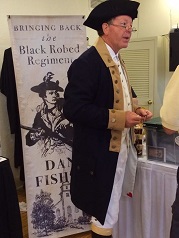 You’re not entirely wrong. Few of us, teachers or no, like change or higher demands on our time and energy – especially when they come from people who have no idea what we do or what they’re talking about.
You’re not entirely wrong. Few of us, teachers or no, like change or higher demands on our time and energy – especially when they come from people who have no idea what we do or what they’re talking about. 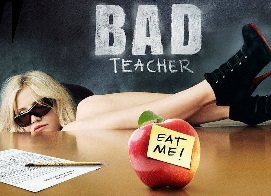 The only way VAM and TLE and other teacher evaluation measurements make any sense or improve anything is if they spur teachers to do a better job. If teachers are capable of doing something better, and aren’t doing it now, the only reasonable inference is that they don’t care enough to improve otherwise.
The only way VAM and TLE and other teacher evaluation measurements make any sense or improve anything is if they spur teachers to do a better job. If teachers are capable of doing something better, and aren’t doing it now, the only reasonable inference is that they don’t care enough to improve otherwise. 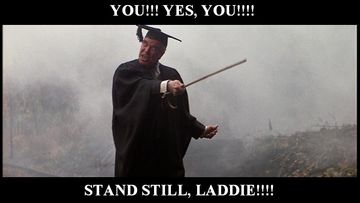 If the solution is ‘raising the bar’ for those entering the classroom, then the problem must be that those choosing education aren’t smart enough to do what they’re hired to do. If that’s true, it’s worth asking what would be useful in drawing ‘smarter’ people into the field – or how to better educate those already willing.
If the solution is ‘raising the bar’ for those entering the classroom, then the problem must be that those choosing education aren’t smart enough to do what they’re hired to do. If that’s true, it’s worth asking what would be useful in drawing ‘smarter’ people into the field – or how to better educate those already willing. 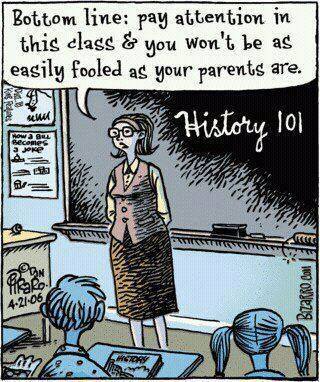 No one wants this job.
No one wants this job.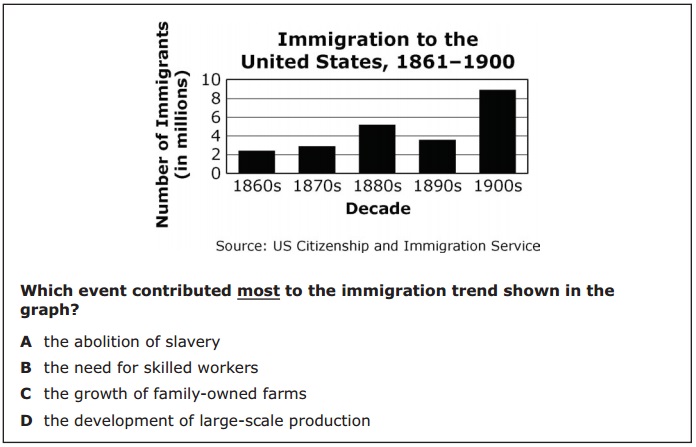
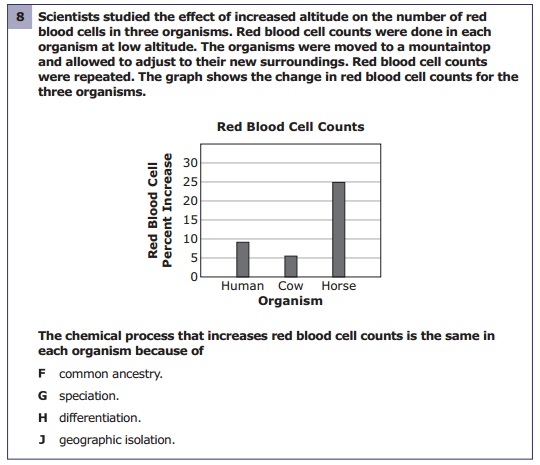


 We can’t vary the curriculum significantly – state law. We can’t afford meaningful, hands-on learning of the sort you keep reading we should be doing, nor can we spare ‘core curriculum’ time to do anything interesting that kids might actually want to explore (and on which we could then build essential universals, like reading and writing and mathematical reasoning) – state law and legislative purse strings.
We can’t vary the curriculum significantly – state law. We can’t afford meaningful, hands-on learning of the sort you keep reading we should be doing, nor can we spare ‘core curriculum’ time to do anything interesting that kids might actually want to explore (and on which we could then build essential universals, like reading and writing and mathematical reasoning) – state law and legislative purse strings. 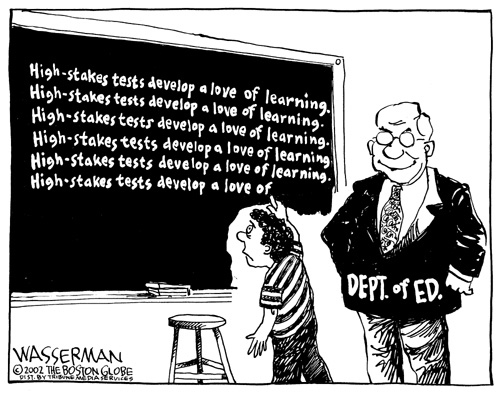 We can’t hold kids with the most potential to real academic standards or expectations of personal responsibility – angry parents, strange cultural ideals about the need to have 102% in everything and never struggle or fail, and administrators who are under a lot of pressure to show that every single child in the district is Top 10%.
We can’t hold kids with the most potential to real academic standards or expectations of personal responsibility – angry parents, strange cultural ideals about the need to have 102% in everything and never struggle or fail, and administrators who are under a lot of pressure to show that every single child in the district is Top 10%. 
 As the kerfuffle surrounding Oklahoma’s sudden desire to de-thinkerize APUSH started making headlines this past week, NPR made a visit to the classroom of Christine Custred of Edmond, OK. The
As the kerfuffle surrounding Oklahoma’s sudden desire to de-thinkerize APUSH started making headlines this past week, NPR made a visit to the classroom of Christine Custred of Edmond, OK. The 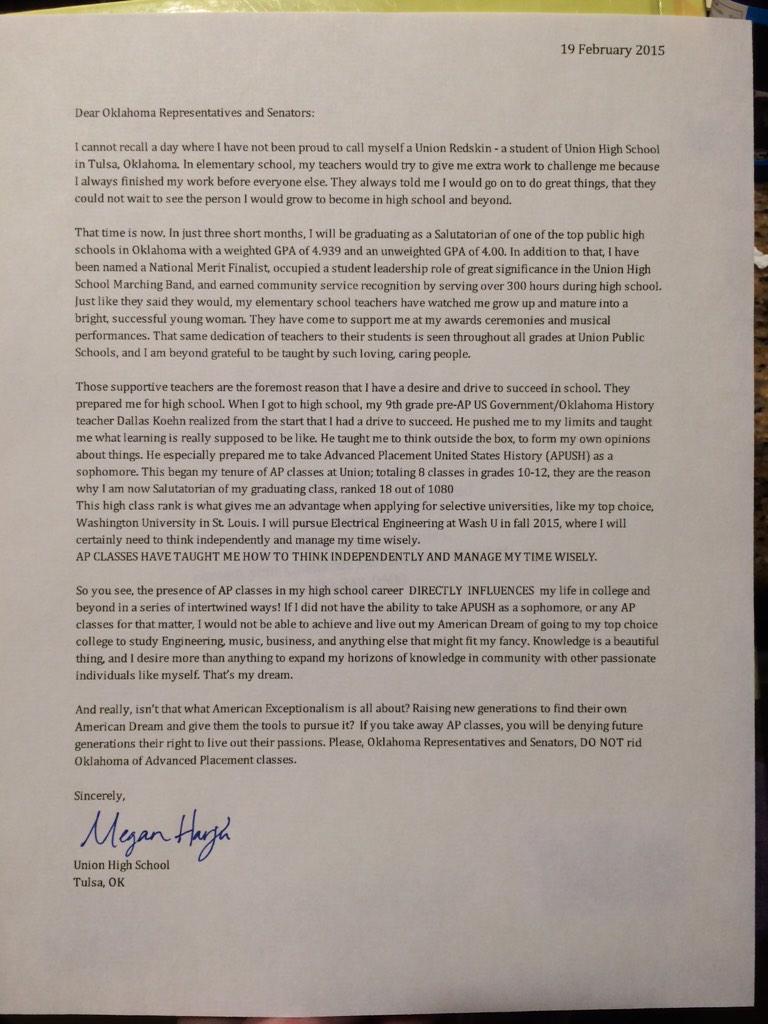
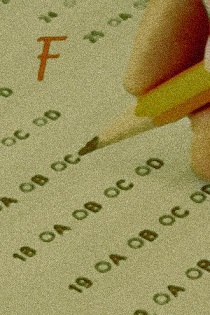 In February 1958, Henry Slesar took a carefuly look into the future and saw the ideal educational system envisioned by Senator Brecheen and Representative Fisher from Oklahoma’s future. He recorded his observations, but was unable to get them published until he labeled them ‘fiction’ and submitted them to the relatively new Playboy magazine – an irony he was likely unable to fully appreciate at the time.
In February 1958, Henry Slesar took a carefuly look into the future and saw the ideal educational system envisioned by Senator Brecheen and Representative Fisher from Oklahoma’s future. He recorded his observations, but was unable to get them published until he labeled them ‘fiction’ and submitted them to the relatively new Playboy magazine – an irony he was likely unable to fully appreciate at the time. Dickie sat at the breakfast table and again saw moisture in his mother’s eyes. He didn’t connect her tears with the exam until his father suddenly brought the subject to light again.
Dickie sat at the breakfast table and again saw moisture in his mother’s eyes. He didn’t connect her tears with the exam until his father suddenly brought the subject to light again. They entered the Government Educational Building fifteen minutes before the appointed hour. They crossed the marble floors of the great pillared lobby, passed beneath an archway and entered an automatic lift that brought them to the fourth floor.
They entered the Government Educational Building fifteen minutes before the appointed hour. They crossed the marble floors of the great pillared lobby, passed beneath an archway and entered an automatic lift that brought them to the fourth floor. “Now just relax, Richard. You’ll be asked some questions, and you think them over carefully. Then give your answers into the microphone. The machine will take care of the rest.”
“Now just relax, Richard. You’ll be asked some questions, and you think them over carefully. Then give your answers into the microphone. The machine will take care of the rest.”